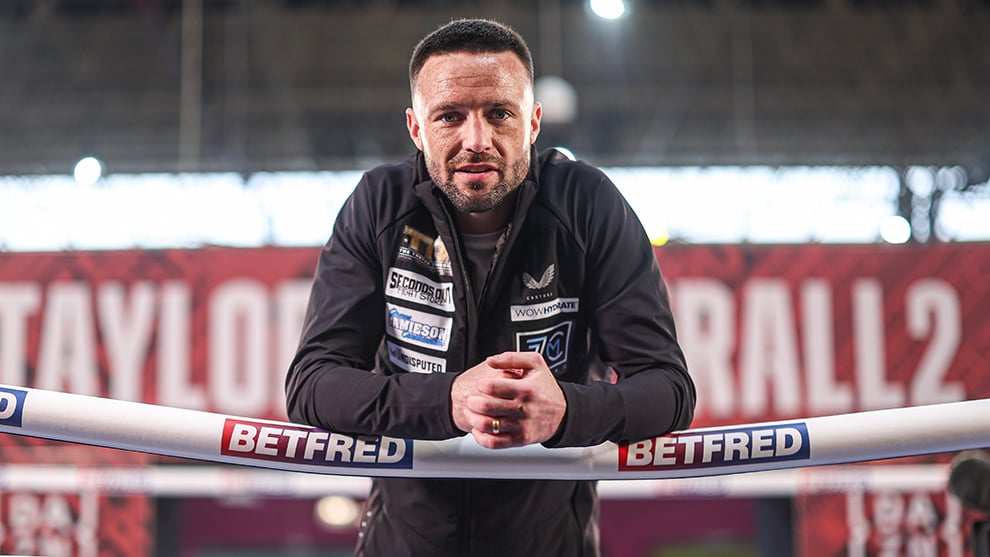By Oscar Pick
ACCORDING to a British boxing medical advisor, Josh Taylor has had sufficient time to recover from his eye injury ahead of an eagerly anticipated rematch against Jack Catterall.
This Saturday, the pair will finally lock horns at the First Direct Arena, Leeds, following their controversial encounter back in 2022.
The long-awaited rematch – initially scheduled for April 27 – was delayed when Taylor revealed that the pressure in his eyes was “way too high.”
Dr Neil Scott, a Consultant Maxillofacial / Head & Neck surgeon and medical advisor to the British Boxing Board of Control (BBBofC), commented: “All I can say is that it is a totally justifiable reason for the delay.
“In terms of boxers with a raised intraocular pressure, so raised pressure within the eyeball itself, it is not a very common thing that we see.”
While Dr Scott is confident that Taylor will be fully fit come fight night, Catterall has suggested otherwise.
The dubious scoring that occurred after their first contest—most notably, Ian John-Lewis’s 114-111 scorecard—is well documented.
Team Catterall responded with a seismic uproar when the former undisputed champion emerged victorious.
But an interesting narrative, one that Catterall has exploited throughout the build-up to their second super-lightweight showdown, is that Taylor, 33, is damaged goods.
Having undergone a minor eye procedure in February, Taylor does not take the risk of damage to his vision lightly, despite Catterall highlighting and ridiculing the fact that this was the third time he had to pull out due to an injury.
“From when he had the intervention [in February], there has been an appropriate amount of time to allow [his eye pressure to reduce],” Dr Scott said.
Symptoms of intraocular problems can include blurred vision, double vision and issues with depth perception.
“As you can imagine, those three things can be quite a problem when you’re in the ring,” Dr Scott added.
Prior to the maiden defence of his undisputed crown, Taylor suffered a knee injury that prolonged Catterall’s wait for his shot at world honours.
Then, after the pair eventually collided, a rematch was scheduled a year later. That was until Taylor tore his plantar fascia and their contest – set for February last year – was scuppered. Instead, Taylor fought Teofimo Lopez in June.
As a result, Catterall, left frustrated by the sporadic nature of his training camps with Jamie Moore, has promised to deliver a performance that will end his opponent’s career once and for all.
In saying so, he has suggested that Taylor’s injuries have caught up with him, claiming that Taylor is no longer the formidable pound-for-pound star he once was.
Leeds, UK: Josh Taylor and Jack Catterall Face Off for the first time in fight week ahead of their Grudge rematch on Saturday Night at the First Direct Arena, Leeds. 21 May 2024 (Picture By Mark Robinson Matchroom Boxing).
Identifying that Taylor might be on the decline, though, does not mean that Catterall will head into his bout on Saturday night underprepared.
Rather, it could be said that he is merely demonstrating a realization of what his opponent will bring to the ring.
There should be a realization, too, for Taylor, who will almost certainly be aware that any further harm to his eyes could lead to potentially devastating consequences.
A direct blow to the eyeball, akin to the one that cut Taylor below his right eye at the midway point of their first fight, would, in turn, risk heightening the pressure between his cornea and lens.
As great as that risk may be, there is clearly a desire for Taylor to remove any doubt that he is capable of comprehensively defeating his domestic rival.
While eye injuries may not be at the forefront of Taylor’s mind when he enters the ring, they are, from the BBBofC’s perspective, rigorously monitored.
Every boxer licensed to fight in the UK will have a formalized eye assessment, measuring their intraocular pressure, as part of their annual medical process.
It is then up to the fighter to produce a performance where direct damage to their eyes is mitigated, something that, even while protecting themselves at all times, is not the easiest of tasks.
